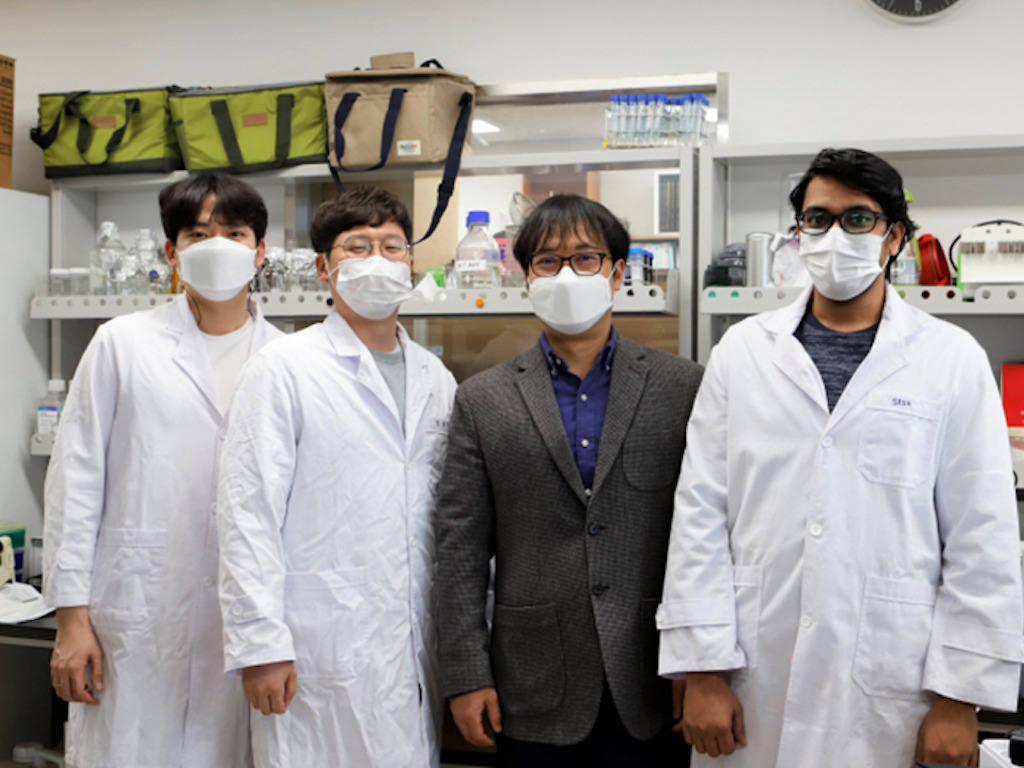3 Mins Read
Researchers at Sejong University in South Korea say they have developed the country’s first cultured pork prototype. The team, led by Professor Park Sungkwon, is collaborating with Seoul National University and homegrown cultivated meat startup Space F and are planning to commercialise their cell-based technology in the future.
Sejong University’s food science and biotechnology research team has announced that it has created the country’s first cultured pork prototype. Reported by Korea Economic Daily, the prototype was showcased in March this year, and was cultured directly from porcine stem cells. It bears a similar muscular structure as conventional pork.
Led by Professor Park Sungkwon, the research team collaborated with scientists from Seoul National University and startup Space F to develop the prototype. The project, which first began in 2018, is being supported by the South Korean Ministry of Trade, Industry and Energy as the country looks to bolster its local food production and resilience against supply chain shocks.
Commenting on the feat, Professor Park said: “We can open up the possibility of securing the fundamental technology for cultured meat production.”
“We are aiming to advance this technology for commercialisation through further research and optimisation,” he added.
In addition to developing cell-based pork, the Sejong University team is also working on culturing beef. According to the report from Korea Economic Daily, the first cultivated beef prototype will be revealed in the “coming months”.
We are aiming to advance this technology for commercialisation through further research and optimisation.
Professor Park Sungkwon, Sejong University
The news comes as the cultivated protein space in the country is starting to gain momentum, with a number of homegrown players setting their sights on delivering cultured meats to South Korean consumers.
SeaWith, for instance, says it wants to launch cultivated meat products at a pilot restaurant by 2022, produced using its own seaweed-based cell culturing medium and scaffolds.
DaNAgreen has adapted its initial biomedical scaffolding for cell-based meat production at a price “a thousand times cheaper than the original”, and are now in the process of creating an entire platform for cellular agriculture protein production, from culture media to bioreactors.
Another food tech, CellMEAT, is creating FBS-free cultured meat and recently closed ₩5 billion (approx. US$4.5 million) in a pre-Series A financing round to scale up and lower production costs.
We can open up the possibility of securing the fundamental technology for cultured meat production.
Professor Park Sungkwon, Sejong University
While cell-based meats have still yet to hit the market outside of Singapore, where regulators were the first to give the go-ahead for Eat Just to sell their cultivated chicken, the plant-based meat space has been booming as consumers continue to look for healthier, safer and more sustainable protein alternatives.
In South Korea, health-focused brand Viomix Tech has launched a separate plant-based “Better Than Meat” line to tap the plant-based trend, while tofu giant Pulmuone recently made its first foray into the market with more than 20 types of vegan food products.
Fast food giant Burger King Korea has also joined the alternative protein wave, introducing two new plant-based burgers to its menu earlier in February, in partnership with Australian food tech v2food.
Lead image courtesy of Sejong University.




